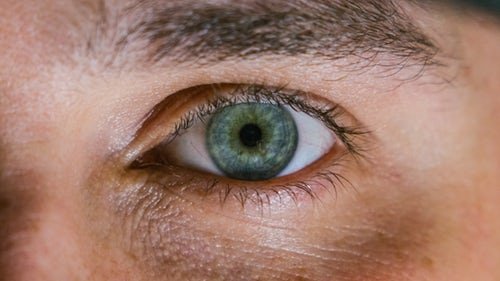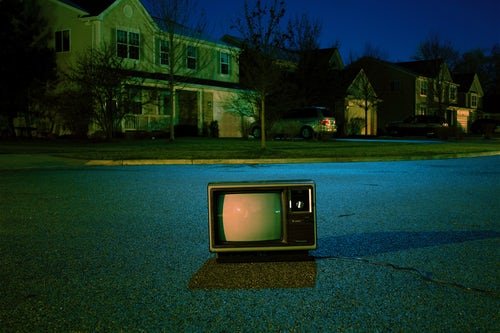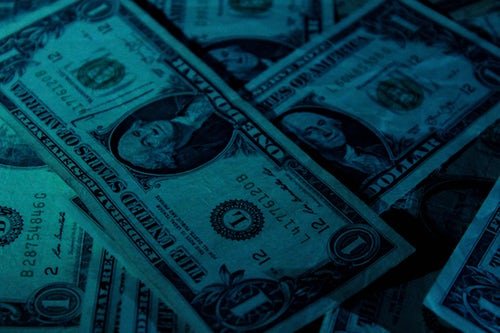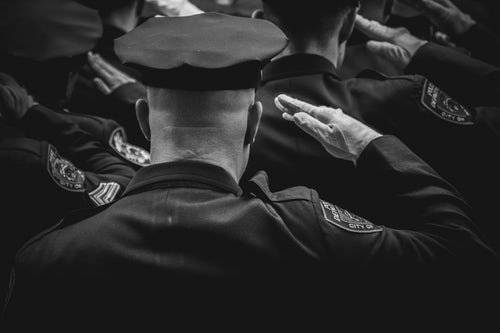
I am going to put on my tinfoil hat in this post but I think I see something in this line of reasoning. I recently wrote about how the suffering or potential suffering of children is exploited to justify oppressive actions by authorities ("'protect' the children by sending people do jail for weed," for example). That is a real problem but it is far from the only way in which the suffering of children or other highly vulnerable individuals is used to manipulate us. Sometimes, real suffering is presented to us for entertainment and I believe this serves two purposes. The first is rather obvious and isn't particularly "tinfoilish." That is, it is profitable for large media corporations to cover sensational things and few things can be sensationalized better than suffering. When suffering is made into reality entertainment, we start to get the idea that real suffering is entertaining. That is to say, it softens the idea of suffering in our minds, it reduces our sympathy for those who suffer, and it makes us less likely act on the behalf of those who are suffering. We stop questioning its cause and the source of that cause. The victims of suffering are no longer people in need because they are presented as clowns and curiosities to be paraded in front of us for our amusement. Worst of all, much of this is done under the guise of providing help for those who suffer. There is more though, I think. This is where my shiny hat comes into play (I imagine that it is shaped like one a pirate would wear). This type of exploitative entertainment functions to support the established systems of authority that are largely responsible for the suffering because the main stream media corporations thrive under that system. To put it simply, the authorities and their mouthpieces in the media know that they have screwed things up and they are attempting to change our perception of what things being screwed up means. To the point, entertaining exploitation is a soft sort of propaganda that serves the established system and, of course, the media gets to earn a profit in the process of presenting it.

I am not talking about tragedy (in the theatrical sense) or comedy and I am not talking about fiction, history, or education, either. I am referring to the brand of reality entertainment that claims to be helping the downtrodden while it puts them on display for us to gawk at and earns untold wealth for the vultures who present it to us as though they are engaging in some virtuous endeavor. Just picture the daytime talk shows that feature troubled teens or victims of abuse and pat themselves on the back for "helping" them while pulling in huge amounts of ad revenue in the process.
When I was writing about the exploitation of childhood suffering as a means of justification, I made the case that it is designed to touch some of our positive impulses (wanting to protect the young) but this sort of exploitative entertainment functions by feeding the (I hate to use the label negative here because it is more complicated than that but for lack of a better term) negative aspects of our personalities. We like to compare things and we are social animals. Because that is the case, we tend to compare others to ourselves to determine where we stand in the social order. This is largely done unconsciously. There is typically no malice or narcissism involved in those judgments and I suspect that they served a vital purpose when we lived in isolated tribal societies. That it is to say, it was important to know who was who and who can do what when we had to cooperate as small communities in order to survive. While the modern world works differently, that compulsion still exists within us and I believe that is what this type of exploitation preys on. Maybe we are a little overweight and The (ironically named) Learning Channel parades some person who is too heavy to walk in front of us. Our unthinking judgment tells us that we are better equipped to function in the "tribe" (that no longer really exists) than that person and we feel a little better about ourselves without understanding why. It brings a fleeting moment of relief and pleasure to a part of our mind that lies somewhere below the surface of our conscious understanding. It works a bit like a drug in that sense, and it is an addictive one.
.jpg)
That "high" that we get is a gold mine for those who have the means to sell suffering to us. They will claim to help people but that is only a thin justification for the actual motives. Dr. Phil will put the victim of childhood sexual abuse on T.V. (I am not sure if he still has a show but you can replace his name with whoever is currently running the same scam) and present himself like he is an advocate, who only wishes to help but he, in reality, is earning money off of that victim and his or her suffering, which is a secondary victimization. People watch to get their "hit" (unconsciously remembering that while their parents might have been dicks, that they were, thankfully, never touched inappropriately). The viewer indulges his or her "negative" impulse to judge and is allowed to feel good about it because the mustached bald man says that he has good intentions in a disarming southern accent, while his fortune grows fat on suffering and our consumption of it.

The media has a symbiotic relationship with the established systems of authority and I believe that it uses this sort of exploitative reality entertainment to aid the establishment. The established social order that is under the control of the established systems of authority places the corporate media at the top of the food chain when it comes to the dissemination of information and profiting from our consumption of that information. They are the ones the authorities talk to and this gives them control of the tap from which most information flows. That being the case, they have a strong motive to support the authorities. Likewise, the authorities need the media to spread their narratives and to polish them so that they are presentable to the public. Simply put, there is a reason that "They" work together and I believe that this fact (I don't think that whether the media supports the establishment is in question at this point) lends credibility to what I think that I see going on.
Okay, so lets put all this together and see what we can come up with (this is tinfoil hat time, by the way). The types of suffering that are chosen for entertainment are often ones that can be traced back to a failing of the authorities, the media, or a corporate sponsor of the media. Troubled teens can be, to some degree, attributed to the inability of the authorities to adequately protect children and the schools' inability to adequately provide with them a reason to stay out of trouble. The shows that present us with the effects of extreme obesity, by exploiting someone with a serious condition, deal with people who are often, in part, victims of corporate food culture. Shows like Murray exploited poor uneducated people (victims of school and bad economic policy)as they argued about who got who pregnant for our amusement. I could go on but you can see the pattern.
The effect that exploitative reality entertainment has on us is what matters. When we see this stuff on daytime T.V. from the time we start watching T.V. and we repeatedly get our little taste of pleasure, many of us start to associate that pleasure with the suffering of others. Some of us become less sympathetic to those who suffer because we equate (unconsciously) their hardship with feeling good. Over time, this makes those of us who are affected less likely to act to help people who suffer. This causes some of us to lose our drive to hold people accountable for the suffering because we rely on them to feed our "habit." By selling us this sort of exploitative entertainment, the media not only enriches itself, it makes us less likely to question the authorities for driving the suffering because we have unconsciously come to enjoy it on some level.

There is more too. After we are presented with the suffering, we are shown that there is a "solution" and it almost always involves submitting to an authority. Again, this serves a duel purpose. It makes the presenters look virtuous for providing "help" and it gives us the false impression that bowing to an authority is the right way to address some of the problems that it contributed to creating. If the show is about "helping" troubled teens, the answer is to send them to a "boot camp." We learn that the authority is "correct" for imposing its will on us by removing children from their environments and putting in psudeo-prison so that they can be taught to conform. When they "help" addicts, we, again, are led to believe that the authority is right to impose its will on people, this time, because they are said to a "danger to themselves." The obese people that we are shown are funneled into the weight loss industry (which is, itself highly exploitative) and, not shockingly, the answer is submitting to an authority (the supposed "experts" who work in that industry and sell often ineffective products).

Is it a conspiracy? I don't know with any certainty but whether this is an organized, collaborative, effort between the authorities and the media, the media taking the initiative to protect the establishment, or just a "happy accident" that happens to benefit both the media and the establishment does not matter because the effect is the same and so is way that it can be addressed. We cannot control what is being produced by the media and we cannot make the establishment stop acting in its own interest. However, we can make an effort to avoid exploitative entertainment products. If they were no longer profitable, there would be less incentive to produce them. We can also question the picture that we are presented with. We can ask what the source of a person's suffering is and try to determine what gave birth to that source so that we can appropriately direct blame and effective work to improve things when we are able to. The most important thing that we can do is to think about the unconscious judgments that we make. We can take a little time to think about how we are viewing others and make an effort to stop ourselves when we find that we are unconsciously judging ourselves against their suffering. Doing that will allow us to reflect on what we see more rationally and help keep us from being taken in by the exploitative entertainers. Our own suffering is not lessened by the suffering of others but thinking that it is makes it easier for us to be misled.
Peace.
All the images in this post are sourced from the free image website unsplash.com.
